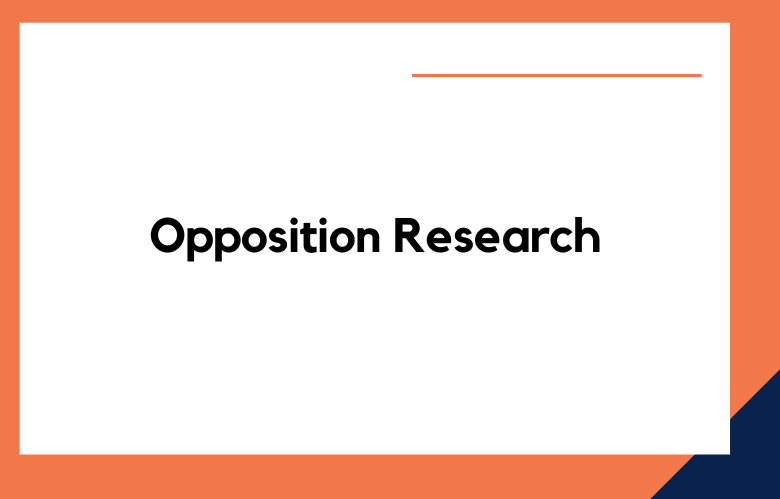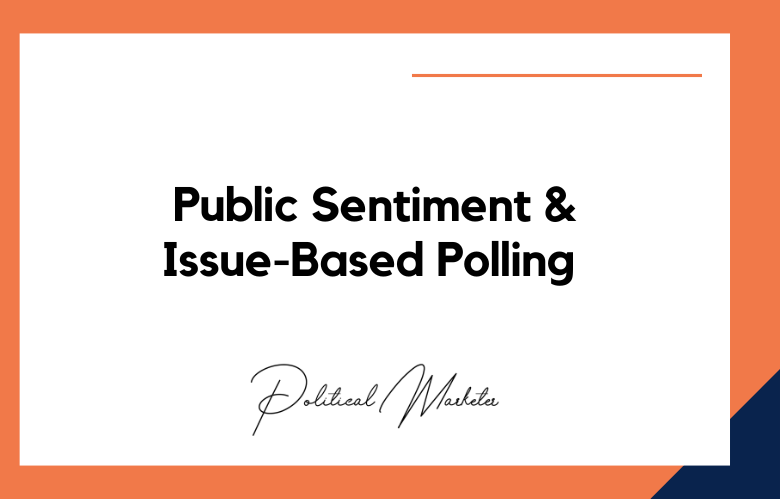The advent of machine learning technologies has led political campaigns and research organizations to rely heavily on automated intelligence-gathering techniques. AI-driven opposition research has drastically changed the way political games are played all around the world.
But, the question that arises is whether it’s ethical to use AI to spy on the opposition. Is it a fair play? We’ll dive deep into the subject of AI-driven opposition research and explore the ethical concerns surrounding its use.
AI-driven opposition research has transformed the world of politics, contributing to better data interpretation, effective campaigning, and smoother decision-making. However, the ethics of using machine learning for opposition research could be better.
The Ethics of AI-driven Opposition Research: Navigating a Fine Line Between Legality and Morality
With the rise of artificial intelligence (AI), opposition research has seen significant changes in recent years.
From social media monitoring to data scraping, AI has enabled opposition researchers to collect vast amounts of information on their political opponents like never before. However, this trend has also raised concerns about the ethical implications of using AI for opposition research.
We will explore the ethical dilemmas facing AI-driven opposition research and examine the legal and moral implications of using AI in this field.
The use of AI in opposition research raises several ethical questions. Firstly, AI-enriched data mining is often classified as “data exploitation,” with large volumes of data being scraped without individuals’ consent.
Navigating the Ethics of AI-Driven Opposition Research
As technology continues to advance, it is no surprise that the world of politics is seeking to leverage AI-driven research technologies.
In particular, opposition research, or investigating political opponents for weaknesses or scandals, is an area where AI is being integrated rapidly.
While some argue that AI can help uncover valuable information more efficiently than traditional research methods, others worry about the ethical implications of relying on machines to analyze sensitive information.
We’ll explore the potential ethical dilemmas when AI is used for opposition research purposes and how we can ensure that ethical considerations are at the forefront of any AI-driven research efforts.
Navigating the Ethical Minefield: AI and Opposition Research
As artificial intelligence (AI) continues to shape various aspects of our lives, it has become an essential tool in opposition research. However, as with any new technology, AI poses specific ethical challenges that must be navigated carefully.
Opposition research involves gathering and analyzing information about political opponents, including their personal and professional backgrounds, voting records, and public statements.
The use of AI in this process provides researchers with the ability to process vast amounts of data quickly and efficiently, leading to more comprehensive and accurate research.
However, the use of AI in opposition research is not without ethical concerns. The most pressing concern centers around privacy and data protection. As AI systems analyze public information and personal data, there are possibilities that sensitive information may be misused or exploited.
Harnessing AI for Good: Examining the Ethics of AI-driven Opposition Research
AI technologies have led to significant advancements in various fields, including political opposition research. Harnessing AI for Good means leveraging AI’s potential to enhance and improve many aspects of our society, including the ethical conduct of opposition research to achieve political objectives.
The role of AI in opposition research is particularly significant, as it can sift through vast amounts of data, identify relevant information, and uncover hidden patterns that can be used to develop effective political strategies. However, with great power comes great responsibility, and ethical concerns must be carefully scrutinized.
Opposition research, by its very nature, involves gathering information that can be used to discredit or expose political opponents. If not conducted ethically, it can lead to political scandals, misinformation, and even harm to individuals. Therefore, it is essential to consider the ethical implications of using AI in this context.
The Power and Perils of AI in Opposition Research: An Ethical Dilemma
The use of artificial intelligence (AI) in opposition research has become an increasingly popular practice in recent years.
While this technology allows for the quick and efficient processing of vast amounts of data, there are also potential ethical dilemmas.
Specifically, using algorithms to sift through personal information and social media data to extract damaging information about political opponents has raised concerns regarding privacy, fairness, and transparency.
On the one hand, using AI in opposition research has the potential to level the playing field in political campaigns.
It allows smaller and less well-funded campaigns to access large amounts of information cost-effectively and efficiently. AI can help to identify patterns and connections that would be difficult, if possible, to identify through manual data analysis.
AI-Driven Opposition Research: Balancing Privacy and Public Interest
In politics, opposition research has long been regarded as a critical component of a candidate’s campaign strategy.
It involves gathering and analyzing information on an opponent’s past behavior, statements, and actions to uncover weaknesses that can be exploited to gain an advantage in an election.
However, with the rise of artificial intelligence (AI), there are concerns about where to draw the line between privacy and the public interest.
One of the benefits of using AI for opposition research is that it can process vast amounts of data quickly and efficiently.
Sources like social media, news archives, and public records can be searched and analyzed in a fraction of the time it would take for a human researcher to do the same work. This can provide valuable insights into an opponent’s past behavior and uncover potential scandals or red flags.
Ensuring Ethical Boundaries in AI-driven Opposition Research
With the advancements in Artificial Intelligence (AI), AI-driven opposition research has become more prevalent in the political sphere.
AI-driven opposition research refers to the use of automated systems to gather and analyze data to gain information about a political opponent’s past actions, public statements, and personal information, among other things.
While AI-driven opposition research has the potential to provide valuable insights and competitive advantages to political campaigns, there is also a risk of violating ethical boundaries.
Ensuring ethical boundaries in AI-driven opposition research is of utmost importance. One way to achieve this is by implementing strict regulations and guidelines for AI-driven opposition research.
Such regulations should cover the sources of data considered for analysis and ensure that only information that is legally and ethically obtained is used. It is critical to safeguard the privacy of individuals, particularly during the data-gathering phase, and ensure that they are not subject to unwanted surveillance or scrutiny.
Ethical Considerations in AI-powered Opposition Research
AI-powered opposition research can be a powerful tool in the political arsenal. However, as with any powerful tool, it must be wielded carefully and ethically.
One primary ethical consideration is the need for transparency. Voters have the right to know how data is being collected, analyzed, and used to develop campaign strategies. This is important for building trust with voters and upholding the integrity of the democratic process.
Another ethical consideration is the risk of bias. Depending on the data sources and algorithms used, AI-powered opposition research could inadvertently reinforce or amplify existing biases.
For example, the data used to build a candidate profile is sourced primarily from social media. In that case, it may include bias and inaccuracies that could skew the perception of that candidate.
The Moral Quandary of AI in Opposition Research
As political campaigns become increasingly data-driven, artificial intelligence (AI) has become more prevalent in opposition research.
AI can analyze vast amounts of information quickly and efficiently, allowing campaigns to uncover potentially damaging information about their opponents. However, this use of AI raises a moral quandary about the proper limits of opposition research.
Opposition research has always been a controversial practice, with some believing it to be an essential tool for exposing flaws and misconduct in political candidates. In contrast, others view it as dirty politics that undermines the integrity of the electoral process. However, the use of AI in opposition research takes the controversy to a whole new level.
Conclusion:
AI-driven opposition research is transforming how political campaigns work, but it comes with inherent ethical concerns such as privacy violations, voter manipulation, and algorithmic bias.
While the potential of AI for political campaigns is immense, the responsibility of using AI with the utmost ethical considerations ultimately lies with the relevant authorities.
Therefore, political actors should recognize the need for ethical guidelines that address the potential risks of AI, emphasize the need for transparency and accountability, and take a principled approach to ensure that AI-driven opposition research is used for the common good rather than abused for electoral gain.
Call: +91 9848321284
Email: [email protected]











